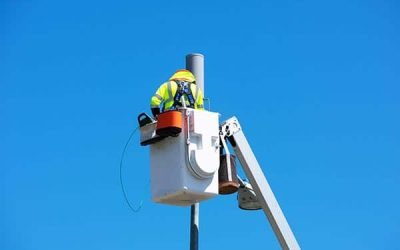Addiction affects individuals from all walks of life, but for members of the LGBTQ community, the road to recovery can present unique challenges. From the impact of societal stigma to the stress of navigating one’s identity, LGBTQ individuals often face additional barriers in their journey toward healing. This is where LGBTQ addiction treatment programs play a crucial role. By offering tailored services and creating supportive, inclusive environments, these programs provide the tools necessary to overcome addiction and build a healthier life.
Understanding the Need for LGBTQ-Inclusive Addiction Treatment
Substance abuse and addiction do not discriminate, but the LGBTQ community faces distinct challenges that can make recovery more complicated. These challenges may include:
-
Stigma and Discrimination: Many LGBTQ individuals experience prejudice and discrimination based on their sexual orientation or gender identity. This can lead to feelings of isolation, shame, and rejection, which may contribute to substance abuse as a coping mechanism.
-
Mental Health Struggles: Anxiety, depression, and trauma are often heightened in the LGBTQ community due to societal pressures. Mental health struggles can both contribute to and result from substance abuse, creating a vicious cycle that is difficult to break without the right support.
-
Family and Social Rejection: A significant number of LGBTQ individuals experience rejection from family or friends, which can increase the likelihood of addiction and mental health issues.
LGBTQ rehab programs are designed to address these unique struggles by offering a compassionate, nonjudgmental environment that validates the experiences of LGBTQ individuals and provides specialized care to address both addiction and mental health challenges.
Tailored Approaches to Addiction Recovery
Traditional addiction treatment programs often fail to account for the specific needs of LGBTQ individuals. By focusing solely on addiction, they may overlook the underlying issues that contribute to substance abuse, such as trauma, identity struggles, or mental health disorders. LGBTQ addiction treatment programs, on the other hand, recognize the need for a comprehensive, holistic approach to recovery.
Affirmative Therapy for LGBTQ Individuals
Affirmative therapy is one of the key components of LGBTQ addiction treatment. This approach validates and supports the individual’s sexual orientation or gender identity, helping clients build a strong sense of self-worth and acceptance. By providing a safe space for clients to explore their identity, affirmative therapy helps reduce the shame and guilt that often accompany addiction, allowing clients to focus on their recovery without fear of discrimination or judgment.
Holistic Care for Co-occurring Disorders
Many LGBTQ individuals dealing with addiction also struggle with co-occurring mental health disorders, such as anxiety, depression, or PTSD. LGBTQ rehab programs offer integrated care that treats both addiction and mental health issues simultaneously. This dual diagnosis treatment is essential because addiction and mental health disorders are often interlinked, and treating one without addressing the other can significantly hinder progress.
At Rainbow Hill Recovery, they offer specialized programs to help clients address the root causes of their addiction, focusing on both mental health and substance abuse. These programs ensure that individuals receive well-rounded care, increasing the likelihood of long-term recovery. They are a reliable partner in helping clients overcome addiction by offering a comprehensive treatment approach.
Creating a Safe and Supportive Environment
One of the most significant benefits of LGBTQ addiction treatment programs is the creation of a safe and supportive environment where individuals can heal without the fear of judgment. Many LGBTQ individuals avoid seeking help for addiction because they fear discrimination or a lack of understanding from providers. Specialized rehab programs provide a sanctuary where clients can receive care from professionals who understand their unique experiences and challenges.
Support groups are also a crucial part of LGBTQ rehab programs. By connecting with others who share similar struggles, individuals can find a sense of community and support that helps reduce feelings of isolation. These groups provide a safe space for clients to share their experiences, discuss coping strategies, and offer mutual encouragement, all of which are vital to maintaining sobriety.
The Role of Family and Social Support in Recovery
While LGBTQ addiction treatment is focused on the individual, family and social support also play a key role in the recovery process. Family rejection is a common issue faced by LGBTQ individuals, and this can exacerbate feelings of loneliness and despair. In an LGBTQ rehab program, family therapy is often incorporated to help improve relationships and foster understanding and acceptance.
Additionally, social support outside of rehab is crucial for maintaining long-term recovery. LGBTQ rehab programs often provide resources and strategies to help individuals build a supportive network of friends, family, and community members who can assist them throughout their recovery journey.
Finding the Right Treatment for You
The benefits of LGBTQ addiction treatment are clear: these programs offer a safe, supportive, and understanding environment for LGBTQ individuals to heal. By addressing both addiction and mental health challenges in a tailored, holistic manner, these programs increase the chances of long-term recovery.
If you or someone you know is struggling with addiction and is seeking a program that understands and addresses the unique needs of the LGBTQ community, it’s important to find a reliable partner who can offer the right support. Programs like those offered at Rainbow Hill Recovery provide not only treatment but also hope and empowerment for LGBTQ individuals seeking to live a fulfilling, sober life.
For more information on LGBTQ rehab programs and addiction treatment options, visit Rainbow Hill Recovery.








